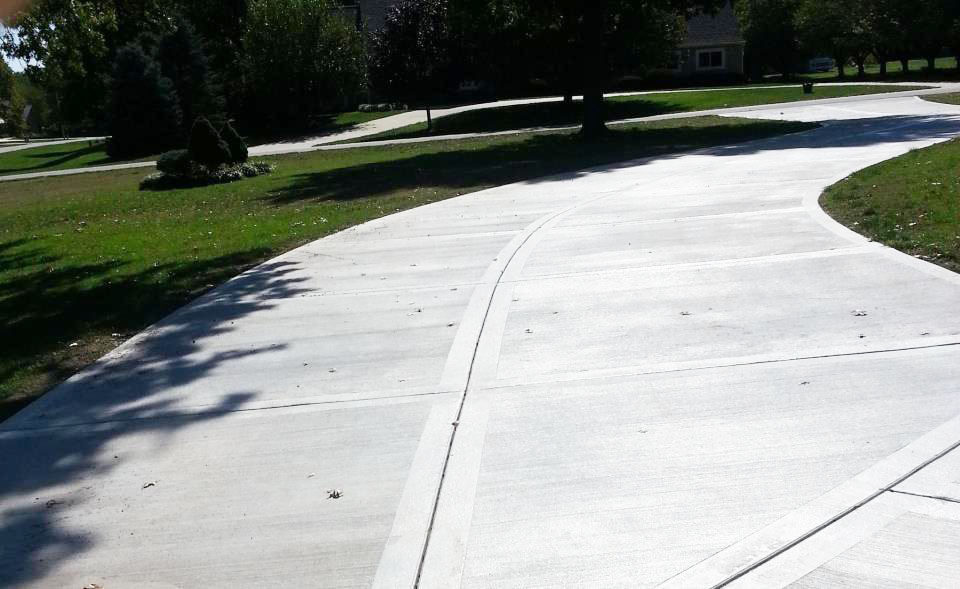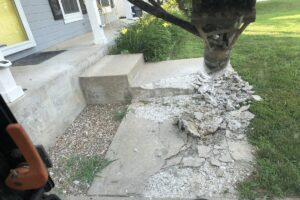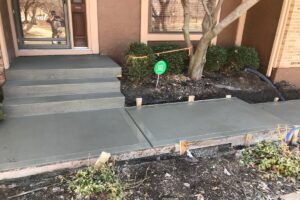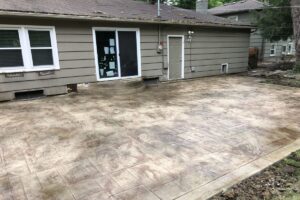Extreme weather, both hot and cold can cause problems for your concrete driveway. When the concrete is exposed to the blazing heat of the summer, there are a few things that can happen.
Once concrete becomes too far damaged it needs to be repaired or replaced. Despite concrete’s strength and durability, it is still prone to damage from extreme weather.
How the Summer Heat Can Affect Your Concrete Driveway
The heat of the sun can damage your concrete through all of its stages, from being poured and years after. When your driveway is under direct sunlight for many hours every day, it can take its toll.
Rapid Moisture Loss
If the sun is beating down on the driveway and the entire yard, it can sap the moisture from the ground. Your trees and plants will start to absorb it first, and that can cause the ground around your driveway to become too dry.
The soil will start to shrink and that can cause the concrete in your driveway to sink or crack. If left untreated, these cracks will get bigger and the entire slabs can sink considerably.
Fade Color
If you have a colored concrete driveway, the UV rays of the sun can fade it. If the sun is not hitting all of your driveway, then you will see patches of color that are more faded than others.
It can also bake in other stains or spots, often from grass trimmings, fallen leaves, oil and grease stains from your car, or berries that drop from your trees. Try to keep these off your driveway.
Damage to Sealant
The sealant used to protect your concrete driveway can get damaged and that weakens the strength of the concrete. Certain sealants, like those that are epoxy-based, will break down under the heat and UV rays.
This will cause them to either produce holes or pull away from the concrete. If these sealants are damaged, then more moisture can get into the damaged areas, and that can cause damage of its own.
Moisture Damage
Just like the lack of moisture will cause damage, so will too much mixture. Once the sealant is damaged, a few days of hard rain can seep into the concrete.
The concrete has lots of tiny holes, and if the sealant is working in one area and not the other, this can cause the concrete to get over-wet in certain spots, making it swell up or buckle in some areas.
Radiation Damage
The sun’s radiation is very powerful. It can cause your concrete driveway to eventually disintegrate. Not overnight, but if you don’t take care of your driveway, you can expect a much shorter lifespan.
The heat and the sun can fade the patterns and colors, weaken the strength of the concrete, and sap it from the much-needed moisture it needs below the surface.
Take Care of Your Concrete Driveway
Use a top-notch sealant on your concrete driveway. Reseal it every other year or when needed. Keep the driveway clean and remove any stains, debris, and other items that you don’t need staining or dripping chemicals.
Make all the necessary repairs you need as soon as you need them. This will help keep your driveway in great shape for many years to come.
Call an expert for inspections and small repairs, to make sure you are not looking at driveway replacement before you need to. Check this link for more information about your concrete driveway.
Here at Johnson Concrete, we work hard to provide a variety of services to help improve your home and property.




